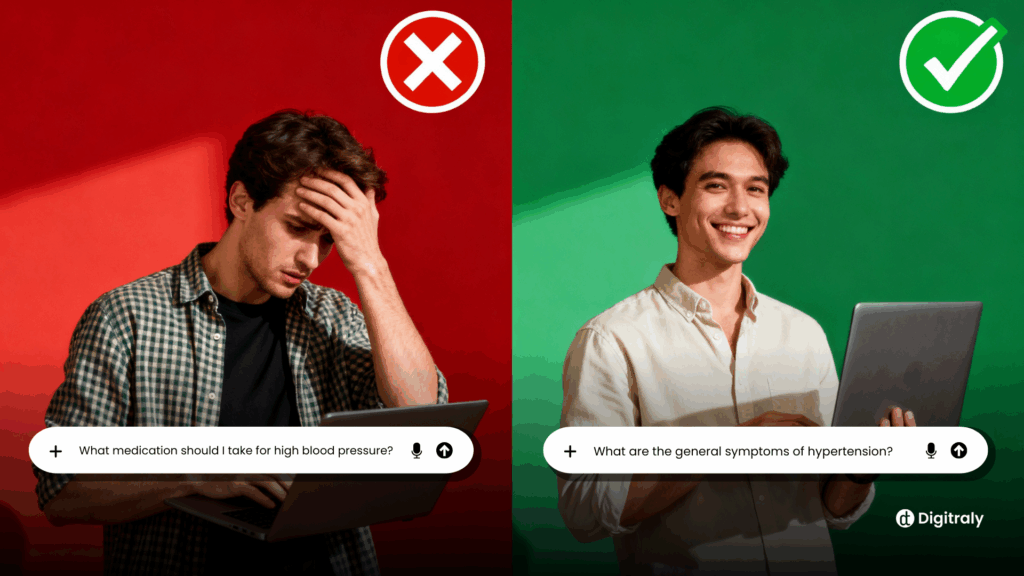This update reflects a growing need to protect users from relying on AI for information that requires human judgment, professional qualification, and contextual understanding.
Understanding the Policy Change
According to OpenAI’s Usage Policies, AI models must not be used to deliver tailored professional advice in areas such as law, medicine, or finance. These domains require certified expertise, which AI cannot legally or ethically replace.

While ChatGPT can still offer general educational information, it will refrain from interpreting or applying that information to individual situations. For example, users can ask, “What are the general symptoms of hypertension?” but not “What medication should I take for high blood pressure?”
This change ensures that AI systems remain a reliable resource for learning and exploration without crossing the line into areas that demand professional certification and accountability.
Why This Change Is Important
The restriction on personalized advice serves several critical purposes:
- User Safety – Incorrect or incomplete information in medical or legal contexts can cause significant harm.
- Regulatory Compliance – Providing professional advice without proper licensing violates regulatory and ethical standards in most jurisdictions.
- Transparency and Trust – Clearly defining what AI can and cannot do builds user confidence and helps prevent misinformation.
- Ethical Responsibility – AI developers must ensure their tools are used within safe and appropriate boundaries.
This shift underscores that AI is a supportive tool for education and efficiency, not a replacement for professional judgment.
What Users Can Still Do
ChatGPT remains highly useful for a wide range of applications. You can still:
- Learn general concepts in law, medicine, and other fields.
- Prepare for consultations with professionals by understanding background information.
- Request summaries, definitions, and explanations of complex terms.
- Explore case studies, examples, and theoretical frameworks.
- Use AI for drafting templates or outlines that are later reviewed by qualified experts.
The key distinction lies in personalization. ChatGPT can assist with general knowledge, but it cannot provide advice specific to an individual’s circumstances, diagnosis, or legal situation.
How to Use AI Responsibly
To ensure that you use AI tools safely and effectively, consider the following best practices:
- Consult professionals for any matter involving your health, finances, or legal rights.
- Treat AI outputs as informational, not advisory or authoritative.
- Verify information with credible and up-to-date sources before acting on it.
- Avoid sharing sensitive personal information in prompts or queries.
- Stay informed about updates to AI usage policies and ethical guidelines.
By following these principles, users can take full advantage of AI’s strengths while minimizing potential risks.
Stay Ahead with Digitraly
AI is evolving, and so should the way we use it. Stay informed and build smarter – follow Digitraly for the latest AI updates.
Reach out to us to create safe, policy-compliant AI solutions for your business. – Contact now!
